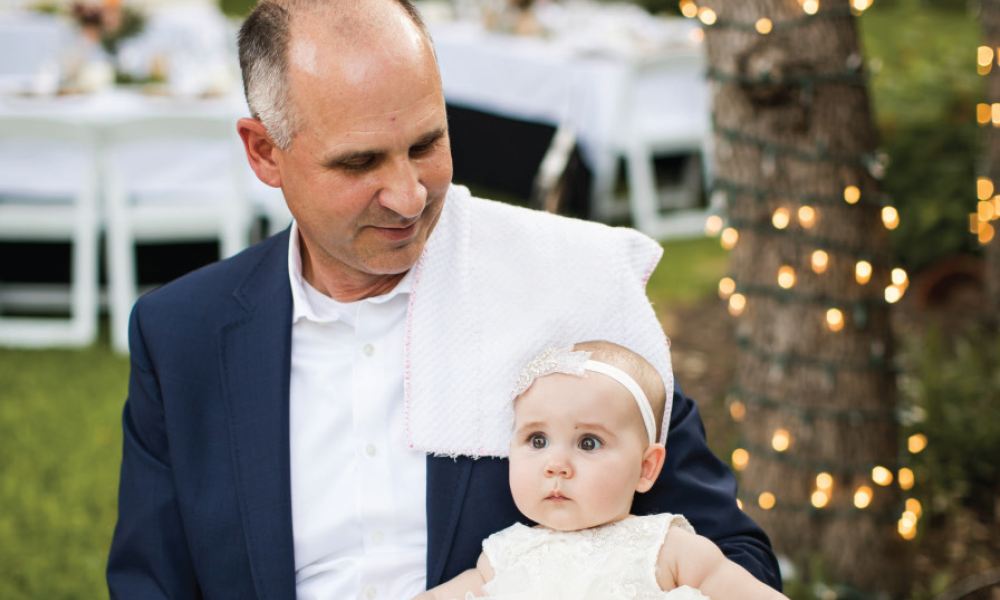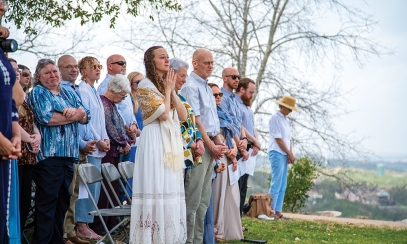
Estate Planning is Part of Our Legacy for Those We Love
Estate Planning Awareness Week is Oct. 17-23. We get it, it’s not as exciting as National Ice Cream Day, but we think it ranks right up there with the best of them! An estate plan is one of the most important things we can create as Christian stewards and is essential to protecting our loved ones and our assets. Estate planning also gives us the ability to make our Catholic faith a central part of our legacy.
Estate Planning Awareness Week is a great time to embark on this important task — starting with your will. A will is a legal document that governs the distribution of our assets after we die. Without a will, state laws determine how our assets are distributed, which may not align with our final wishes. Creating a will may seem intimidating, but according to FreeWill.com, following these steps on how to make a will can make the process much less time-consuming and less expensive than most people think!
1. Decide which type of document is necessary.
A simple will, or last will and testament, will work for most people; however, if one owns many assets and property in multiple states or owns a business, it may be worth considering a living trust. An estate planning attorney can help with this decision.
2. Determine what assets to include in the will.
Make a list of all important assets and accounts (home, vehicle(s), retirement savings, life insurance policies, investment and bank accounts). Consider family heirlooms or sentimental items that are important, such as vintage jewelry or antique furniture, and designate them to specific people in the will.
3. Decide who will inherit property.
Be specific about who should receive each asset as this can help with the probate process and prevent misunderstandings and conflict later. It is important to understand that some types of assets allow for the naming of beneficiaries, such as retirement accounts and life insurance policies, which enables the asset to transfer directly to the beneficiary outside of the will.
4. Choose an executor.
The executor is the person who carries out the terms of the will and distributes assets to the beneficiaries. Executors are named in the will document. Serving as an executor can be a complicated job because that person will be responsible for identifying and distributing the assets of the estate, paying any debts of the estate, filing tax estate tax returns and more. Accordingly, someone who is reliable, organized and trustworthy is a good choice.
5. Appoint guardians for minor children.
A guardian for minor children under the age of 18 should be named in the will. A surviving parent will usually receive sole legal guardianship, but if both parents pass at the same time, the will can be used to appoint a guardian for minor children to help ensure that their needs are met.
6. Make a donation to charity
As we prayerfully reflect on what is important to us and how we can make an impact that extends beyond our lifetime, we can consider charitable organizations like the Diocese of Austin, our parish, a Catholic school or the Catholic Foundation – Diocese of Austin as beneficiaries in our will. There is an optional section in the free, online estate planning tool at freewill.com/austindiocese where one can easily add favorite charities as beneficiaries.
7. Sign the written will in front of witnesses to make it legally valid.
According to FreeWill.com, the state of Texas requires that one to sign their will in front of two “credible” witnesses. Witnesses must be at least 14 years old, and a witness is only “credible” when they are not inheriting anything from the will.
Writing our will is a powerful way to steward the blessings God has entrusted to us while protecting the people we love. It is the “Ultimate Act of Christian Stewardship.” Contact Dan Wierzbowski at dan-wierzbowski@austindiocese.org for help with estate planning or visit austindiocese.myplannedgift.org.
The information in this article is not intended to provide legal or tax advice. As always, please contact your attorney or tax adviser for such advice.
Dan Wierzbowski is the associate director of planned giving for the Diocese of Austin. He is a parishioner of St. Albert the Great Parish in Austin.



